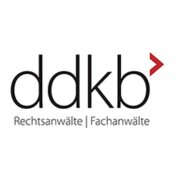Best Employment & Labor Lawyers in Bonn
Share your needs with us, get contacted by law firms.
Free. Takes 2 min.
List of the best lawyers in Bonn, Germany
Germany Employment & Labor Legal Articles
Browse our 1 legal article about Employment & Labor in Germany written by expert lawyers.
- Wrongful Dismissal in Germany: What to Do After Being Fired
- Most employees in Germany enjoy strong statutory protection, especially against unfair dismissal, under laws like the Civil Code (BGB) and Protection Against Dismissal Act (KSchG). You usually must act very fast after receiving a termination: you have only 3 weeks to file a claim at the labor court (Arbeitsgericht). Written... Read more →
About Employment & Labor Law in Bonn, Germany
Employment and labor law in Bonn, Germany, governs all aspects of the relationship between employers and employees. It aims to ensure fair treatment in the workplace, safeguard employee rights, and provide mechanisms for conflict resolution. Given Bonn's significance as a former capital and its vibrant economic landscape, understanding the local employment laws can help both employers and employees navigate their professional lives effectively.
Why You May Need a Lawyer
There are various situations where you might require legal assistance in employment and labor matters in Bonn. These include:
- Employment Contracts: Reviewing employment contracts to ensure they comply with German labor laws and protect your interests.
- Workplace Disputes: Addressing conflicts such as discrimination, harassment, wrongful termination, and unpaid wages.
- Collective Bargaining: Navigating negotiations between labor unions and employers.
- Compliance Issues: Ensuring that workplace policies and practices comply with national and local labor laws.
- Social Security: Understanding your rights and obligations regarding social security contributions.
Local Laws Overview
Employment and labor laws in Bonn are framed within the larger context of German labor legislation. Key aspects include:
- Arbeitsrecht (Employment Law): Covers employment contracts, termination conditions, working hours, and rest periods.
- Arbeitsschutz (Occupational Safety and Health): Regulates workplace conditions to ensure employee safety and health.
- Mitbestimmung (Co-determination): Grants employees the right to participate in company decision-making through works councils (Betriebsräte).
- Antidiskriminierungsgesetz (Anti-Discrimination Act): Protects employees against discrimination based on race, gender, religion, disability, age, and sexual orientation.
- Tarifrecht (Collective Bargaining Law): Governs the negotiation and enforcement of collective labor agreements between unions and employers.
Frequently Asked Questions
What should an employment contract include?
An employment contract should outline job responsibilities, working hours, salary, probation period, notice periods for termination, and any additional benefits. It must comply with German labor laws.
What are my rights if I'm wrongfully terminated?
In Germany, wrongful termination can be challenged within three weeks of receiving the termination notice. You may be entitled to reinstatement or compensation.
Can my employer change my contract terms?
Employers generally cannot unilaterally change contract terms. Any modifications require mutual consent and a written amendment to the contract.
How are working hours regulated?
Full-time employees typically work 40 hours per week. Overtime is allowed but must be compensated according to the employment contract or collective bargaining agreements.
What is the role of a works council?
Works councils represent employees in various company matters, including working conditions, health and safety, and company policies. They ensure employee rights are upheld.
How does maternity leave work?
Expectant mothers are entitled to six weeks of leave before the birth and eight weeks after. During this period, they receive maternity allowance (Mutterschaftsgeld).
What protections exist against workplace discrimination?
German laws prohibit discrimination based on race, gender, religion, disability, age, and sexual orientation. Employees can seek legal recourse if they experience discrimination.
Can I join a labor union?
Yes, employees have the right to join labor unions and participate in collective bargaining processes.
How is workplace safety regulated?
Occupational safety is regulated by various laws to protect employees from hazards. Employers must comply with safety standards and provide necessary training and equipment.
What should I do if my employer isn't paying me correctly?
If you believe you are not being paid correctly, you should first address the issue with your employer. If unresolved, seek legal advice or contact the local labor court (Arbeitsgericht).
Additional Resources
For more information and support, consider reaching out to the following resources:
- Bundesministerium für Arbeit und Soziales (Federal Ministry of Labour and Social Affairs)
- Deutscher Gewerkschaftsbund (German Trade Union Confederation)
- Local Employment Agencies (Agenturen für Arbeit)
- Local Workers' Councils (Betriebsräte)
- Legal Aid Services (Rechtsberatungsstellen)
Next Steps
If you need legal assistance in employment and labor matters, consider the following steps:
- Consult with a specialized employment lawyer: Look for attorneys who specialize in employment and labor law in Bonn.
- Gather Documentation: Collect all relevant documents such as employment contracts, pay stubs, correspondence, and any evidence related to your issue.
- Contact Local Authorities: Report any severe breaches to local labor offices or work councils for immediate intervention.
- Seek Support from Labor Unions: If you are a member of a labor union, utilize their legal assistance services.
Taking these steps can help ensure that you receive the proper legal guidance and support to navigate the complexities of employment and labor issues in Bonn, Germany.
Lawzana helps you find the best lawyers and law firms in Bonn through a curated and pre-screened list of qualified legal professionals. Our platform offers rankings and detailed profiles of attorneys and law firms, allowing you to compare based on practice areas, including Employment & Labor, experience, and client feedback.
Each profile includes a description of the firm's areas of practice, client reviews, team members and partners, year of establishment, spoken languages, office locations, contact information, social media presence, and any published articles or resources. Most firms on our platform speak English and are experienced in both local and international legal matters.
Get a quote from top-rated law firms in Bonn, Germany — quickly, securely, and without unnecessary hassle.
Disclaimer:
The information provided on this page is for general informational purposes only and does not constitute legal advice. While we strive to ensure the accuracy and relevance of the content, legal information may change over time, and interpretations of the law can vary. You should always consult with a qualified legal professional for advice specific to your situation.
We disclaim all liability for actions taken or not taken based on the content of this page. If you believe any information is incorrect or outdated, please contact us, and we will review and update it where appropriate.
Browse employment & labor law firms by service in Bonn, Germany
Bonn, Germany Attorneys in related practice areas.










